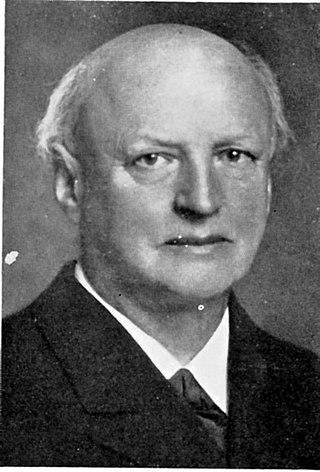See also
- Paul Rader (born 1934), 15th General of the Salvation Army
- General reader
General Ræder may refer to:

Erich Johann Albert Raeder was a German admiral who played a major role in the naval history of World War II and was convicted of war crimes after the war. He attained the highest possible naval rank, that of grand admiral, in 1939. Raeder led the Kriegsmarine for the first half of the war; he resigned in January 1943 and was replaced by Karl Dönitz. At the Nuremberg trials he was sentenced to life imprisonment but was released early owing to failing health in 1955.
The Commando Order was issued by the OKW, the high command of the German Armed Forces, on 18 October 1942. This order stated that all Allied commandos captured in Europe and Africa should be summarily executed without trial, even if in proper uniforms or if they attempted to surrender. Any commando or small group of commandos or a similar unit, agents, and saboteurs not in proper uniforms who fell into the hands of the German forces by some means other than direct combat, were to be handed over immediately to the Sicherheitsdienst for immediate execution.
Nicolai Ditlev Ammon Ræder was a Norwegian jurist and civil servant.

Rolf Hans Wilhelm Karl Carls was a high-ranking German admiral and deputy to Kriegsmarine commander-in-chief Erich Raeder during much of World War II. Carls served as Flottenchef, the navy's highest ranking administrative officer, and was a member of the Oberkommando der Marine. He was instrumental in planning German naval operations during Operation Weserübung – the invasion of Denmark and Norway. When Raeder resigned as head of the navy in early 1943, he suggested Carls as a candidate to succeed him. After Adolf Hitler appointed Admiral Karl Donitz to succeed Raeder, Carls was discharged from the navy. A recipient of the Knight's Cross of the Iron Cross, he was killed in a British air raid on the town of Bad Oldesloe on 24 April 1945.
Johan Georg Alexius Ræder was a Norwegian diplomat.

Operation Weserübung was the invasion of Denmark and Norway by Nazi Germany during World War II. It was the opening operation of the Norwegian Campaign.
Johan Christopher Ræder was a Norwegian military officer.
Hans Jacob "Jacques" Theodor Wilhelm Ræder was a Norwegian military officer.
Johan Christopher Ræder was a Norwegian military officer. He was of German and Danish descent, and partly served in the Danish army.
Johan Georg Ræder was a Norwegian military officer.

Rudolf Falck Ræder was a Norwegian military officer, engineer and politician for the Liberal Left Party.

Johann Günther Lütjens was a German admiral whose military service spanned more than 30 years and two world wars. Lütjens is best known for his actions during World War II and his command of the battleship Bismarck during her foray into the Atlantic Ocean in 1941. He was killed in action during the last battle of the battleship Bismarck.

The Battle of Trangen took place on 25 April 1808 at Trangen in Flisa, Hedemarkens Amt, between Swedish and Norwegian troops, as a part of the Dano-Swedish War of 1808–1809. The invading Swedish troops, led by Colonel Carl Pontus Gahn, were surrounded and forced to surrender by the Norwegian troops under the command of Bernhard Ditlef von Staffeldt. Gahn and around 450 of his troops were captured.

Anton Henrik Ræder was a Norwegian educator, philologist and historian. He is most commonly known for his history textbooks relating to the Roman Empire.
Johan Georg Ræder was a Norwegian military officer, railway pioneer and politician. He was a driving force in the construction of Norway's first railway line, the Hoved Line from Christiania to Eidsvoll, which opened in 1854.
Erich Johann Albert Raeder was a naval leader in Germany before and during World War II. This article covers Raeder's life as the Großadmiral up to the start of World War II. Raeder attained this naval rank, the highest possible, in 1939, becoming the first person to hold that rank since Alfred von Tirpitz. Raeder led the Kriegsmarine for the first half of the war; he resigned in 1943 and was replaced by Karl Dönitz. He was sentenced to life in prison at the Nuremberg Trials, but was released early due to failing health. Raeder is also well known for dismissing Reinhard Heydrich from the Reichsmarine in April 1931 for "conduct unbecoming to an officer and a gentleman".
Erich Johann Albert Raeder was a naval leader in Germany who played a major role in the naval history of World War II. Raeder attained the highest possible naval rank, Großadmiral, in 1939 and thus became the first person to hold that rank since Henning von Holtzendorff. Raeder led the Kriegsmarine for the first half of the war. He resigned in 1943 and was replaced by Karl Dönitz. Raeder was sentenced to life in prison at the Nuremberg Trials but was released early because of failing health.
Erich Johann Albert Raeder was a naval leader in Germany before and during World War II. Raeder attained the highest possible naval rank – that of Großadmiral – in 1939, becoming the first person to hold that rank since Henning von Holtzendorff. Raeder led the Kriegsmarine for the first half of the war; he resigned in 1943 and was replaced by Karl Dönitz. He was sentenced to life in prison at the Nuremberg Trials, but was released early due to failing health.
Ræder or Raeder is a surname. Notable people with the surname include: